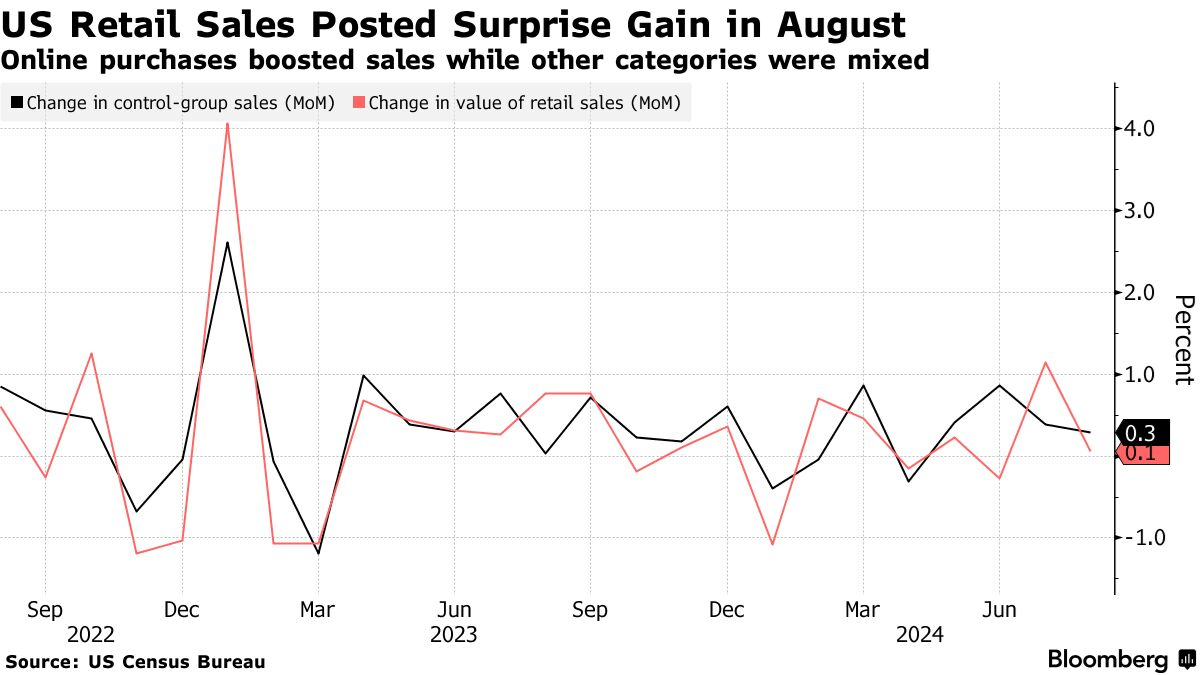
Macro Briefing: 18 September 2024

1% monthly advance follows July’s strong 1… “The stronger than expected retail sales data for August suggest that, boosted by rapid wealth gains and falling energy prices, consumers continue to spend freely despite the labor market slowdown,” writes Capital Economics North America economist …
US retail sales rose in August, posting an unexpected increase vs. expectations for a loss. The slight 0.1% monthly advance follows July’s strong 1.0% increase. “The stronger than expected retail sales data for August suggest that, boosted by rapid wealth gains and falling energy prices, consumers continue to spend freely despite the labor market slowdown,” writes Capital Economics North America economist Olivia Cross wrote in a note to clients.

US industrial production rebounded sharply in August. The Federal Reserve reports that output jumped 0.8% after a revised 0.9% decline in July. Economists had been expecting a much softer rise.
Home builder sentiment in the US edged higher in September, based on the NAHB/Wells Fargo Housing Market Index. Although the index remains in net-negative terrain, this month’s rise marks a break after four consecutive monthly declines.
Biden does not plan on invoking federal law to stop a possible port strike on the East Coast and Gulf of Mexico that could start Oct. 1, an administration official says. “We’ve never invoked Taft-Hartley to break a strike and are not considering doing so now,” a White House official tells Reuters.
The Federal Reserve is expected to cut interest rates today, but it’s still a tough call. “We don’t see systemic employment concerns coming from large corporations yet, primarily because we have a resilient earnings environment, which doesn’t suggest massive looming layoffs,” says Julia Hermann, global market strategist at New York Life Investments. “However, the other half of private employment in the US comes from small business, and they don’t think now is a good time to expand. So the overall effect is where we see cracks on the surface of the labor market.”
The recent rally in small-cap stocks has “not been enough to close the gap on their larger counterparts so far in 2024,” Morningstar reports. “As mega-cap stocks grab headlines and hit fresh highs, small caps are increasingly relegated to the periphery and contradict the investing proverb: Higher risk = higher return.” Research analyst Zachery Evens writes: “As small-cap stocks continue to underperform their larger peers, small-cap ETFs increasingly look like a contrarian bet. Maybe that’s for a reason.”

Author: James Picerno
